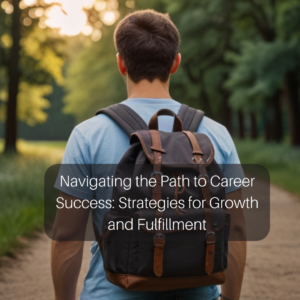Some links in this article may be affiliate links, meaning we may earn a small commission if you make a purchase through them.
“Don’t be afraid of failure. You are going to fail, so fail quickly, learn from your mistakes, make adjustments, and try again.”
Wil Vanloh
In the dynamic landscape of energy investments, few individuals stand out like Wil VanLoh, the visionary founder of Quantum Capital Group, formerly known as Quantum Energy Partners. With a career spanning over two decades, VanLoh has left an indelible mark on the industry through his innovative approach to private equity investments and his unwavering commitment to excellence. Let’s delve into the journey of this remarkable entrepreneur and learn about his pivotal role in shaping the energy investment landscape.
Wil VanLoh’s Early Career:
Wil VanLoh’s journey into the world of finance began with a solid foundation in finance from Texas Christian University. Armed with a degree in finance, he embarked on a career in energy investment banking, where he honed his skills and expertise in advising energy companies on mergers, acquisitions, and raising capital. His tenure at esteemed institutions like Kidder, Peabody & Co. and NationsBank provided him with invaluable experience in navigating the complexities of the energy sector and executing high-stakes financial transactions.:
Fuelled by his entrepreneurial spirit and a desire to carve his own path, Wil VanLoh co-founded Windrock Capital, Ltd., a boutique energy investment banking firm. At Windrock, VanLoh played a pivotal role in providing strategic guidance to energy companies, facilitating mergers and acquisitions, and securing private equity investments. His visionary leadership and deep understanding of the energy market set Windrock apart as a trusted advisor in the industry.
The Birth of Quantum Capital Group:
In 1998, Wil VanLoh embarked on a transformative journey with the establishment of Quantum Capital Group. Under his leadership, Quantum emerged as a prominent player in the energy investment landscape, specializing in private equity investments across the energy value chain. VanLoh’s visionary approach and strategic acumen propelled Quantum to new heights, establishing the firm as a powerhouse in the industry.
Failure: A Pathway to Success
In the pursuit of success, failure is often viewed as the antithesis—a stumbling block on the path to greatness. However, what if we reframed our perspective and saw failure not as a roadblock but as a stepping stone to success? In this comprehensive exploration of failure and its role in achieving greatness, we delve deep into the concept of failure, its impact on success, and strategies for embracing failure as a catalyst for growth.
Understanding Failure:
Failure is an inherent part of the human experience. From infancy, we learn to walk by stumbling and falling numerous times before eventually mastering the skill. Yet, as we grow older, our perception of failure shifts from being a natural part of the learning process to something to be feared and avoided at all costs. This fear of failure can paralyze us, preventing us from taking risks and pursuing our goals with full vigor.
Consider the story of J.K. Rowling, whose initial manuscript for “Harry Potter and the Philosopher’s Stone” was rejected by multiple publishers before finding success. Despite facing numerous setbacks and rejections, Rowling persisted in pursuing her vision, ultimately becoming one of the most successful authors of our time. Her journey serves as a testament to the resilience and determination required to overcome failure and achieve success.
Similarly, in the world of entrepreneurship, failure is an inevitable part of the journey towards success. Research indicates that a majority of startups fail within their first few years of operation, often due to factors beyond the founder’s control. However, rather than viewing failure as a definitive endpoint, successful entrepreneurs embrace it as a valuable learning opportunity. By analyzing their failures, adapting their strategies, and persevering in the face of adversity, entrepreneurs like Elon Musk and Steve Jobs have achieved groundbreaking success, revolutionizing industries and shaping the course of history.
Learning from Mistakes:
One of the most significant benefits of failure is the opportunity it provides for learning and growth. Research in educational psychology suggests that mistakes are not only inevitable but also essential for learning. When we make mistakes, our brains engage in a process of cognitive restructuring, allowing us to understand where we went wrong and how we can improve in the future. This process of trial and error is fundamental to human progress and innovation.
Thomas Edison, often hailed as one of the greatest inventors of all time, famously remarked, “I have not failed. I’ve just found 10,000 ways that won’t work.” Edison’s relentless pursuit of success in the face of repeated setbacks exemplifies the resilience required to overcome failure and achieve greatness. Similarly, J.K. Rowling faced numerous rejections before finding success with the Harry Potter series, demonstrating the importance of perseverance in the face of adversity.
Overcoming Pride and Fear:
One of the biggest obstacles to embracing failure is pride—the reluctance to admit when we’ve made a mistake for fear of appearing weak or incompetent. However, as entrepreneur and author Wil Vanloh aptly puts it, “pride is the single largest contributor to most people’s inability to achieve greatness.” By acknowledging our failures and humbly accepting feedback, we can overcome this barrier and unlock our full potential.
In the case of Blockbuster, once a dominant force in the entertainment industry. Despite warnings from employees and industry experts about the rise of online streaming services, Blockbuster’s leadership remained steadfast in their prideful conviction that their business model was invulnerable. As a result, Blockbuster failed to adapt to changing consumer preferences, ultimately leading to its demise.
Conversely, humility emerges as a powerful antidote to pride, enabling individuals to acknowledge their fallibility and learn from their mistakes. Research suggests that humble individuals are more open to feedback, exhibit greater self-awareness, and foster stronger interpersonal relationships. By embracing humility, leaders like Microsoft’s Satya Nadella have transformed organizational cultures, fostering innovation and resilience in the face of adversity.
Strategies for Handling Failure:
When faced with failure, it’s essential to respond constructively rather than reactively. Psychologist Carol Dweck’s research on the growth mindset highlights the importance of viewing failure as an opportunity for learning and growth. By adopting a growth mindset, we can approach challenges with optimism and resilience, knowing that setbacks are temporary and opportunities for growth abound.
Dweck’s research, spanning decades of study, has demonstrated the profound impact of mindset on human behavior and achievement. In her seminal work, “Mindset: The New Psychology of Success,” Dweck distinguishes between two fundamental mindsets: the fixed mindset and the growth mindset. Individuals with a fixed mindset believe that their abilities and talents are fixed traits, leading them to avoid challenges and view failure as a reflection of their inherent inadequacy. In contrast, those with a growth mindset embrace challenges as opportunities for learning, recognizing that failure is not a permanent condition but rather a stepping stone to improvement and mastery.
From the world of sports, where athletes like Michael Jordan and Serena Williams credit their success to a mindset of continuous improvement, to the realm of business, where entrepreneurs like Sara Blakely and Elon Musk view failure as a necessary stepping stone to innovation and success, the principles of the growth mindset permeate every aspect of human endeavor.
Cultivating Resilience:
Resilience is the ability to bounce back from failure stronger than before. While some individuals seem naturally resilient, resilience is a skill that can be developed and honed over time. Research suggests that cultivating resilience involves developing coping mechanisms, maintaining a positive outlook, and seeking social support during challenging times. By building resilience, we can navigate life’s inevitable ups and downs with grace and determination.
Research conducted by psychologist Susan Kobasa identified three key characteristics associated with resilience: challenge, control, and commitment. Individuals who view stressful situations as challenges to be overcome, believe in their ability to influence outcomes (control), and maintain a sense of purpose and direction (commitment) tend to exhibit greater resilience in the face of adversity.
Additionally, maintaining a positive outlook can significantly contribute to resilience. Studies have found that optimism, or the tendency to expect positive outcomes even in the face of adversity, is associated with greater psychological well-being and resilience. Optimistic individuals are better able to cope with stress, recover more quickly from setbacks, and maintain a sense of hope and optimism about the future.
Conclusion:
In the dynamic landscape of energy investments, individuals like Wil VanLoh exemplify the transformative power of resilience and the importance of embracing failure as a pathway to success. Through his visionary leadership and unwavering commitment to excellence, VanLoh has not only reshaped the energy investment landscape but has also inspired countless entrepreneurs and leaders to adopt a growth mindset and cultivate resilience in the face of adversity.
As we reflect on the journey of Wil VanLoh and the lessons learned from his remarkable career, it becomes evident that failure is not a barrier to success but rather a stepping stone to greatness. By reframing our perspective on failure, embracing humility, and adopting a growth mindset, we can overcome pride and fear and unlock our full potential.
From the pioneering spirit of entrepreneurs like Elon Musk and J.K. Rowling to the groundbreaking innovations of companies like Microsoft and Tesla, the stories of resilience and perseverance serve as a testament to the human spirit’s capacity for growth and transformation. As we navigate the complexities of life and business, let us embrace failure as a catalyst for learning, a source of resilience, and a pathway to achieving greatness. Together, we can cultivate a culture of resilience, innovation, and growth, shaping a brighter and more resilient future for generations to come.
Additional Resources:
- “Mindset: The New Psychology of Success” by Carol S. Dweck – This book delves into the concept of mindset and how adopting a growth mindset can lead to greater success and resilience in various aspects of life.
- “Grit: The Power of Passion and Perseverance” by Angela Duckworth – Angela Duckworth explores the importance of grit, a combination of passion and perseverance, in achieving long-term goals and overcoming adversity.
- “Originals: How Non-Conformists Move the World” by Adam Grant – Adam Grant examines the characteristics of original thinkers and explores how they navigate failure, embrace creativity, and drive change in their fields.
- “Daring Greatly: How the Courage to Be Vulnerable Transforms the Way We Live, Love, Parent, and Lead” by Brené Brown – Brené Brown discusses the power of vulnerability and how embracing our imperfections can lead to greater resilience, creativity, and connection.
- “Option B: Facing Adversity, Building Resilience, and Finding Joy” by Sheryl Sandberg and Adam Grant – Sheryl Sandberg and Adam Grant share personal stories and research-based insights on resilience, offering practical strategies for navigating life’s challenges and finding joy in the face of adversity.
These books offer valuable insights and practical strategies for embracing failure, cultivating resilience, and fostering a growth mindset in both personal and professional endeavors.




